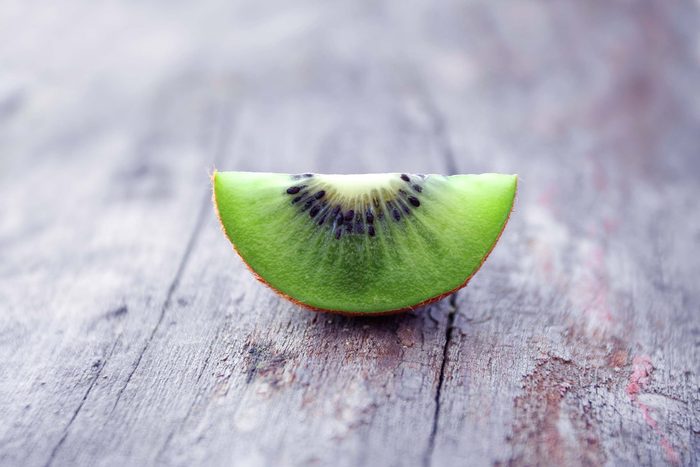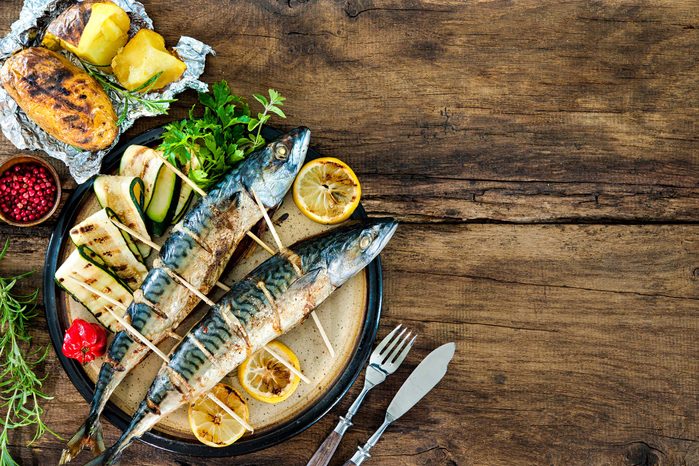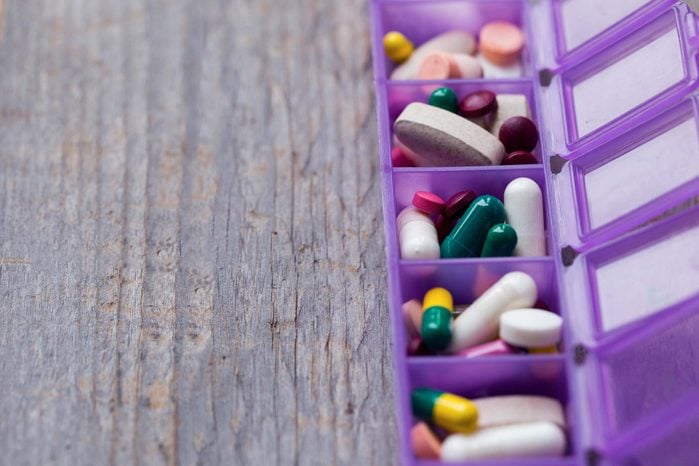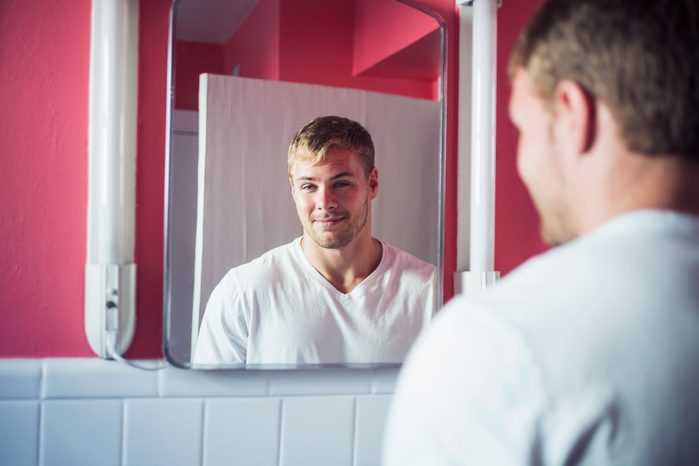
Spend time with friends
If you’re depressed, you generally need a doctor’s help and treatment may include psychotherapy, medication, or both. However, if you are in a low mood, there are natural remedies or lifestyle changes that may help. Regular social contact with a close friend may boost self-confidence and encourage you to make other positive changes that will help fight depression, such as starting an exercise program.

Play with a dog
Pet your neighbor’s dog for a few minutes a day, volunteer at an animal shelter, or stop by your local pet store for some furry one-on-one therapy. The National Alliance on Mental Health (NAMH) points to earlier studies showing many the benefits pets provide. Owning a dog, the alliance notes, can help wipe away stress, anxiety, and depression. Dog owners also tend to have lower blood pressure. However, just playing with a dog may increase your body’s levels of feel-good chemicals. “For someone living with depression, there is so much to gain from having a dog,” NAMH states.

Get a massage
Whether you pay a professional or ask a spouse or friend to rub your back, the result is the same: a natural mood boost. In fact, the Mayo Clinic lists massage therapy as one of many ways to help manage depression. That’s because it’s a soothing mind-body connection benefit. Other mind-body techniques include acupuncture, meditation, and art therapy. Just stick to these activities instead of these everyday habits that up your risk for depression.

Drink one to two cups of coffee or tea each morning
Regular, modest caffeine intake decreases the risk of depression by more than 50 percent, says Edward J. Cumella, PhD, a professor of graduate psychology with Purdue University Global in the Phoenix, AZ area. Research backs this up. For example, information published in a 2015 issue of the journal Molecular Nutrition & Food Research notes that coffee may have a “protective effect” on the risk of depression.

Eat mood-boosting foods
Walnuts, kiwi, bananas, sour cherries, pineapple, tomatoes, and plums are all naturally high in serotonin. If you’re a fruit fan, you’ll enjoy learning about these surprising health benefits of kiwi. Therefore, they’re the ideal grocery list items for overcoming depression. You can also eat foods high in tryptophan, an essential amino acid that your body converts to serotonin, a natural mood booster. Tryptophan is commonly found in proteins such as turkey, fish, chicken, cottage cheese, nuts, cheese, eggs, and beans. You’ll want to load up on these; a 2016 study noted that after tryptophan depletion, people were at a higher risk to develop depression.

Get more omega-3s
You may want to stock up on your salmon and other fish. They contain omega-3 fatty acids, which is associated with fighting depression. According to Harvard Medical School, there are two omega-3 fatty acids believed be the most helpful for individuals with mood disorders like depression. Those two are eicosapentaenoic acid (EPA) and docosahexaenoic acid (DHA). In addition to cold-water fish like salmon and mackerel, other omega-3 foods include kidney beans, flaxseeds, and walnuts.

Take your vitamins
Boost your mood by taking the right vitamins. According to the Mayo Clinic, that means taking B-12 and folate. “Low levels of B-12 and other B vitamins such as vitamin B-6 and folate may be linked to depression,” experts there note. These vitamins are associated with improved brain function. However, they make it clear that vitamins alone aren’t the one and only way to alleviate depression. Overcoming depression may also require antidepressants and psychological counseling.

Force your lips into a smile
“Research shows that the physiology of smiling actually makes you feel happy,” Cumella says. Laughter helps stimulate production of the feel-good hormone serotonin, so if you’re feeling down force your lips into a smile. Better yet, try watching a funny movie or stand-up routine. Here are even more science-backed reasons to smile.

Pull an all-nighter
Staying up all night for one night—and therefore depriving yourself of sleep—can lift depression. While it sounds counter-intuitive, it seems to work. After all, information published in 2016 noted that sleep deprivation, along with other natural therapies such as light therapy, were associated with mood improvements and reduced depression. Speak to your doctor before trying this though, because this kind of help may not be ideal for you.

Bang on something
Researchers speculate that drumming helps to relax your body. One study published in 2016 noted that “group drumming can reduce depression and anxiety and improve social resilience in mental health service users over a 6- and 10-week spans.” Whacking a few notes out on your desk may help, but joining a weekly drumming circle may help more, particularly since it provides camaraderie with others, which, as noted earlier, also helps with depression.

Sleep in a different bedroom
Many people with depression also have insomnia. Switching your sleep location can help, says Cumella. You can also reduce insomnia by getting up at the same time every day, never napping for more than 20 minutes, shunning caffeine after 3 p.m., and relaxing for an hour before bed. If you opt a 20-minute snooze, here’s more about the things that happen to your body when you take a nap.

Go easy on yourself
When something goes wrong, resist the urge to mentally beat up on yourself. When you catch yourself mentally berating yourself for some supposed failing, replace your negative thoughts with phrases like, “I am doing the best I know how to do” or “When I know a better way and can do it, I will.”

Break out of your routine today
Sometimes being stuck in a rut is just that. But if you get out of your same old routine, your mood may come along with you. Take a day off from work and go explore a town nearby. Go out to a restaurant for dinner, even on a Tuesday night. Take a different route as you drive to work, wear something that is totally “not you,” or take your camera and go on a photography hike. For a major blue mood, consider taking a vacation.

Take walks, especially in the winter
Many people feel depressed during the winter months, when they travel to and from work in darkness and don’t get enough natural sunlight. Physical exercise, however, encourages the release of hormones and neurochemicals that boost mood, says Richard Brown, MD, an associate clinical professor of psychiatry at New York City’s Columbia University and coauthor of Stop Depression Now. Walking outside during the day will give you a few short doses of sunlight, also shown to boost mood, particularly in the winter.

Exercise
As Dr. Brown noted, exercise can boost your mood. Find an exercise program that you enjoy doing and you’ll find it’s surprisingly easy to fit in a little exercise every day. While aerobic exercise is the most effective way to boost serotonin, calming exercises like yoga are also beneficial. Or get a day of vigorous outdoor recreation, like hiking, canoeing, or biking. Let the combination of nature and physical activity work their magic on your mood. These strategies may help but if you think you may be depressed, or if low mood is interfering with your ability to enjoy your life, you may want to seek evaluation by a therapist or physician.
Excerpted from the book Stealth Health.
